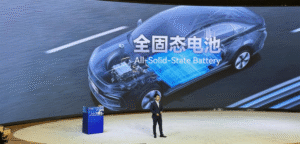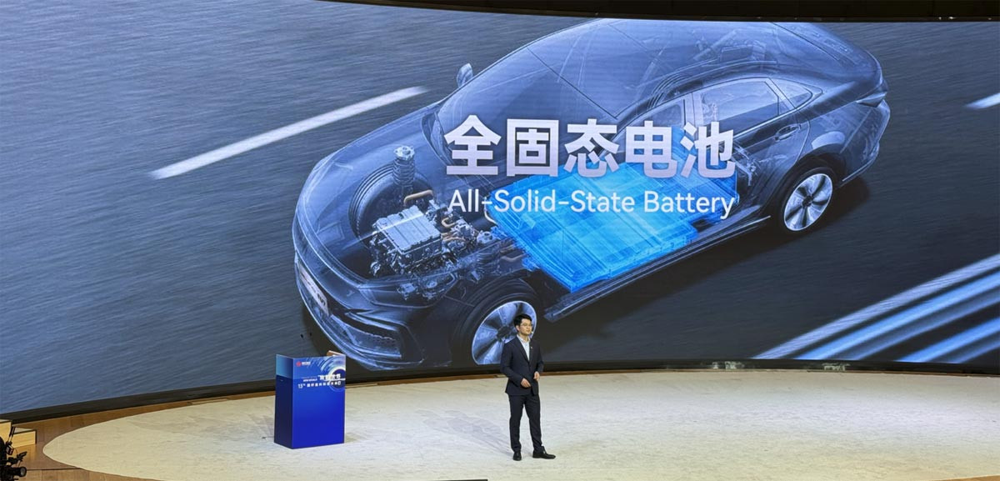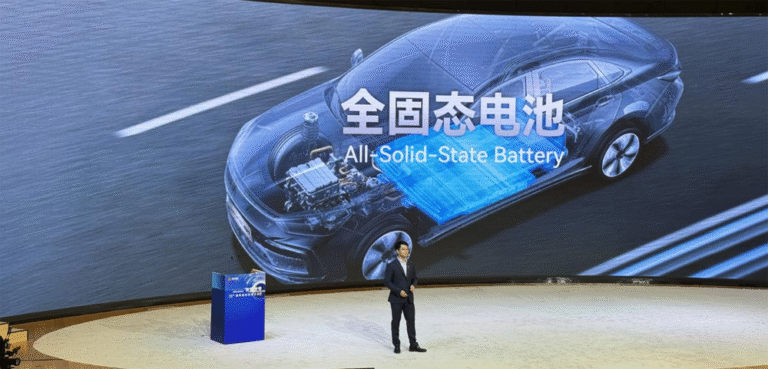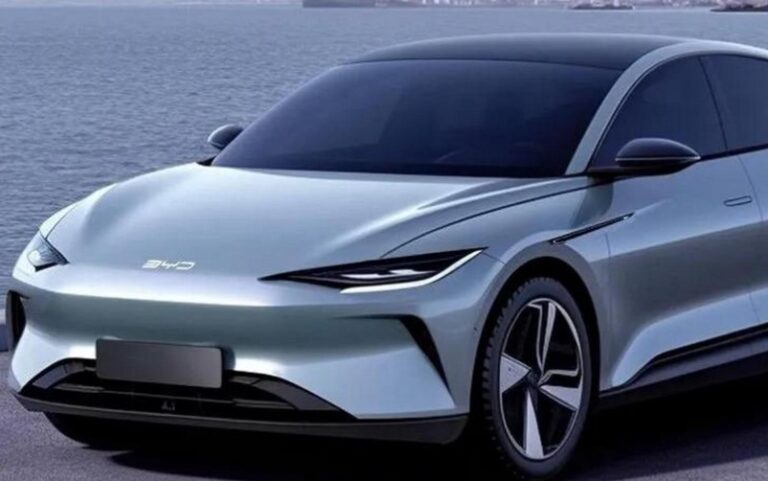Gotion High-Tech Company Limited Detailed Research Report ,ESG Initiatives and Sustainability

Gotion High-Tech has made Environmental, Social, and Governance (ESG) considerations an integral part of its corporate strategy. The company recognizes that success in the battery industry goes hand-in-hand with sustainable practices, given the critical role of batteries in enabling a low-carbon future. Gotion’s ESG initiatives are reflected in its 2040 carbon neutrality goal, green manufacturing efforts, corporate social responsibility programs, and governance practices.
Environmental (E) Initiatives:
- Carbon Neutrality Pledge: Gotion has publicly pledged to achieve carbon neutrality by 2040 for its operationsen.gotion.com.cn. This ambitious target, disclosed in its 2023 ESG report, involves a phased plan to reduce and offset carbon emissions.
- The company is increasing the number of “zero-carbon factories” in its portfolioen.gotion.com.cn. This includes powering facilities with renewable energy, improving energy efficiency, and using carbon offsets if necessary. Gotion actively installed photovoltaic (PV) capacity at its sites; in 2023, on-site solar power generation reached 49.65 million kWh, a 26.7% increase from 2022en.gotion.com.cn.
- As mentioned, Gotion built the world’s first zero-carbon cathode material plant in Wuhai, Inner Mongolia, covering nearly 40 square kilometersen.gotion.com.cn. This facility utilizes large-scale PV power and possibly wind power to operate without drawing carbon-intensive grid electricity, a pioneering move in greening the battery supply chain.
- Energy Efficiency: With production expansion, Gotion’s total energy consumption has risen, but energy intensity has improved markedly. In 2023, energy consumption per unit of product was 35.2 kWh per kWh of cell, a 10.9% reduction YoYen.gotion.com.cn. Similarly, GHG emissions per unit product were 85,060 gCO₂e/kWh, down by 6,940 gCO₂e/kWh from the previous yearen.gotion.com.cn. These figures illustrate the company’s efforts in reducing the carbon footprint of manufacturing through efficiency gains.
- Gotion implemented digital energy management systems in at least six subsidiaries to monitor and optimize energy use in real timeen.gotion.com.cn. By tracking consumption and identifying inefficiencies, these systems contributed to saving 95.62 million kWh of energy in 2023 via 152 energy-saving and carbon-reduction projects across 11 major subsidiariesen.gotion.com.cn.
- Battery Recycling and Resource Circularity: Gotion is actively building capacity in battery recycling to ensure sustainable material usage. It has facilities that can process 50,000 tons of spent batteries and 10,000 tons of scrap electrode pieces annually, achieving an impressive >92% recycling rate of battery materialsen.gotion.com.cn. This means key components like lithium, nickel, cobalt, and copper are recovered and reused, reducing the need for virgin mining and preventing hazardous waste. Such a recycling rate is industry-leading and contributes to a circular economy in the battery sectoren.gotion.com.cn. Gotion sees recycling as part of its carbon neutrality approach, as reusing materials is generally less carbon-intensive than extracting new onesen.gotion.com.cn. The company likely works with or has subsidiaries in battery recycling (possibly leveraging government support given China’s push for battery recycling).
- Green Logistics: Gotion’s ESG report highlights improving the proportion of green logisticsen.gotion.com.cn. This includes using electric vehicles for intra- and inter-facility transport, optimizing shipping routes to reduce fuel use, and potentially shifting more cargo from road to rail (which in China is largely electrified). By greening its logistics and supply chain, Gotion not only reduces emissions but also aligns with the expectations of global OEM partners focusing on Scope 3 emissions.
- Compliance with Environmental Standards: As Gotion expands internationally, it adheres to local and international environmental regulations. Its new factories are being built with environmental impact assessments and incorporate features like wastewater treatment, solvent recovery systems (for NMP solvent in cell production), and adherence to EU REACH and ROHS standards for chemical use. This proactive environmental compliance ensures smoother operations and avoids regulatory pitfalls abroad.
Social (S) Initiatives:
- Employee Welfare and Development: Gotion employs thousands of people worldwide and emphasizes providing a safe, fair, and growth-oriented workplace. The company invests in worker training programs, particularly as it introduces highly automated manufacturing that requires skilled operators and engineers. It also enforces strict safety protocols in its factories to prevent accidents, given the hazardous materials handled (lithium salts, solvents, etc.). There have been no major safety incidents publicly reported, indicating solid safety management.
- Communities and Society: Gotion engages in corporate social responsibility (CSR) activities, such as poverty alleviation programs and educational initiatives in communities where it operates. For example, in Anhui (where it’s headquartered), the company has supported local schools and donated to charitable causes. This helps build goodwill and local support for its factories.
- Talent and Inclusion: With its global spread, Gotion’s workforce has become international. The company fosters a culture of diversity and inclusion, employing local staff in overseas plants and encouraging knowledge exchange. It also collaborates with universities (like Fudan, mentioned above) which can provide opportunities for students and researchers (e.g., internships, joint projects).
- Product Safety and Society Impact: On the product front, by improving battery safety (less fire risk, better performance), Gotion’s innovations contribute to broader EV adoption, which has positive societal impacts (reduced pollution, quieter cities). Moreover, its ESS products help stabilize grids and integrate renewables, benefitting society by enabling cleaner energy usage. Gotion’s management often frames the company’s mission as delivering “green energy solutions” to societyen.gotion.com.cn.
Governance (G) Practices:
- Board Composition and Oversight: After VW’s investment, Gotion’s corporate governance has become more internationally aligned. VW’s representation on the board (Olaf Korzinovski) ensures that best practices from a global automotive leader influence governanceen.gotion.com.cn. Gotion’s board includes independent directors (likely academics or industry veterans) who chair key committees like audit and remuneration, enhancing oversighten.gotion.com.cn. The presence of supervisors (common in Chinese corporate governance) adds another layer of oversight on management and financials.
- Transparency and Reporting: Gotion has improved transparency by releasing an ESG report alongside its annual report in 2023en.gotion.com.cn. This report publicly discloses key ESG metrics, targets, and progress, holding the company accountable to stakeholders. Being a listed company, it also files regular financial reports, and significant events are publicly announced, as per Shenzhen Stock Exchange rules.
- Risk Management: The company is aware of risks including market, financial, and regulatory risks. For instance, as it expands overseas, it mitigates compliance risk by working closely with local governments (e.g., signing MOUs in Moroccocnevpost.com, abiding by U.S. foreign investment review processes for its plants). It also must manage intellectual property risk; given its heavy patent strategy, Gotion has internal IP compliance measures and defends its patents if infringed.
- Anti-Corruption and Ethics: Gotion likely follows standard anti-corruption practices, especially as it deals with governments and large contracts globally. It would have codes of conduct for employees, and training on anti-bribery laws (like FCPA for US operations). There is no known scandal involving Gotion, indicating a thus-far clean track record.
- ESG Governance: Gotion set up an internal ESG committee to coordinate these efforts (many Chinese firms have done so under investor pressure). The ESG committee monitors progress on carbon neutrality, social initiatives, etc., and reports to senior management. This governance structure ensures ESG goals (like 2040 neutrality) are integrated into business decisions rather than being peripheral.
One concrete outcome of Gotion’s ESG focus is recognition from partners and industry. For example, Volkswagen honored Gotion with its Battery Supplier Award, highlighting not just technical excellence but alignment with VW’s valuesen.gotion.com.cn. Additionally, Gotion’s contributions to carbon reduction likely support its standing in green finance – it could access green bonds or loans given its environmental projects (like the Wuhai zero-carbon plant).
Another example: Gotion’s ESG report notes active supply chain carbon reduction initiativesen.gotion.com.cn. It encourages and perhaps requires its suppliers (for cathodes, anodes, etc.) to also adopt greener practices. Being part of VW’s supply chain, Gotion will need to meet VW’s “goTOzero” environmental program requirements, which likely include decarbonizing the upstream supply chain and ethical sourcing of minerals (ensuring no child labor in cobalt, etc.). Gotion has to ensure its raw materials (like lithium, cobalt) are sourced responsibly, and it increasingly relies on recycled materials which help in this regard.
Overall Impact: Gotion’s ESG efforts have dual benefits: they mitigate environmental and social risks associated with battery production (which can be energy-intensive and involve hazardous materials), and they enhance the company’s reputation and acceptability, especially in overseas markets. Countries and customers are more likely to welcome Gotion’s factories and products if it demonstrates commitment to sustainability. For instance, the Illinois plant announcement highlighted the contribution to decarbonization and the local economy (creating thousands of jobs in a disadvantaged area)poweringlives.comed.compoweringlives.comed.com, framing Gotion as a socially responsible investor.
In conclusion, Gotion High-Tech is proactively integrating ESG principles, aiming to be a “green energy solutions” leader that not only profits from the EV revolution but also helps drive it ethically and sustainablyen.gotion.com.cn. By pursuing carbon-neutral operations, championing recycling, caring for employees and communities, and maintaining robust governance, Gotion is aligning its corporate growth with global sustainability goals. These efforts not only fulfill moral and regulatory expectations but also give Gotion a competitive edge: customers like automakers increasingly choose suppliers with strong ESG performance to ensure their own supply chain sustainability. Gotion’s ESG journey thus reinforces its long-term viability and appeal as a global battery partner.






